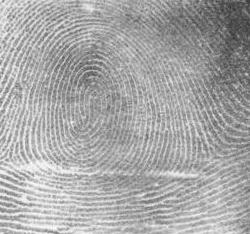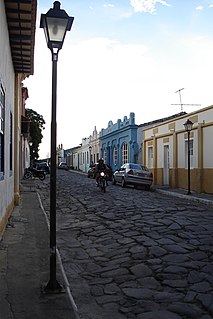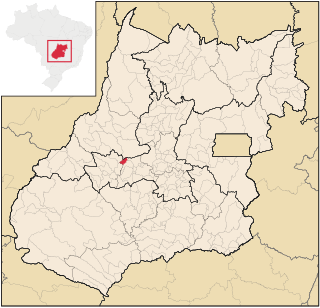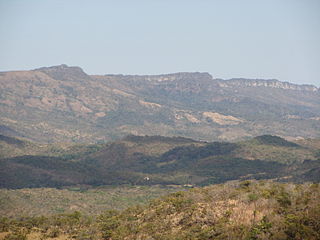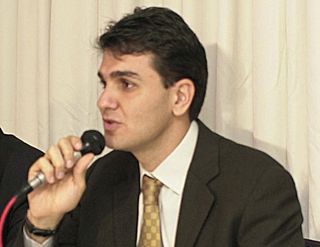| ||||||||||||||||
| Opinion polls | ||||||||||||||||
| Turnout | 87.59% [1] | |||||||||||||||
| ||||||||||||||||
| ||||||||||||||||
The Goiânia mayoral election of 2012 was held on 7 October as part of the municipal elections in Brazil. Then incumbent mayor, Paulo Garcia, elected as the running mate of Iris Rezende in the previous election, ran against seven other candidates and was re-elected with more than 57% of the valid votes. On the same date, voters also chose their 35 representatives for the Municipal Chamber (Câmara Municipal). The elected mayor, deputy-mayor and aldermen will serve from 1 January 2013 until 31 December 2016, when their terms will officially expire.

Paulo de Siqueira Garcia was a Brazilian neurosurgeon, physician and politician from the Workers' Party. He was the mayor of Goiânia from 1 April 2010, when then-mayor Iris Rezende resigned in order to run for Governor at the 2010 election, until his death.
A running mate is a person running together with another person on a joint ticket during an election. The term is most often used in reference to the person in the subordinate position but can also properly be used when referring to both candidates, such as by saying Joko Widodo and Jusuf Kalla, and Uhuru Kenyatta and William Ruto, were running mates in relation to the presidential elections held in Indonesia in 2014 and Kenya in 2013 respectively.
Contents
Although he faced seven contestants, Garcia found no major problems in being re-elected in the first round. He took advantage from the outcome of the Monte Carlo Operation, led by the Federal Police (Polícia Federal – PF) on early 2012. Until then, the candidate backed by Governor Marconi Perillo, then-Senator Demóstenes Torres, was the favorite in the opinion polls. PF's investigations, however, revealed that Perillo was an accessary to mobster Carlinhos Cachoeira and that Torres lobbied on his behalf at the Senate. Allegations of corruption undermined the intention of Perillo's Brazilian Social Democracy Party (Partido da Social Democracia Brasileira – PSDB) to launch Congressman Leonardo Vilela, also associated with Cachoeira, or to support Torres, which was later impeached for his affiliation with the offender. Therefore, Perillo decided to support Congressman Jovair Arantes, that was hampered by the unpopularity of the latter.

The two-round system is a voting method used to elect a single winner, where the voter casts a single vote for their chosen candidate. However, if no candidate receives the required number of votes, then those candidates having less than a certain proportion of the votes, or all but the two candidates receiving the most votes, are eliminated, and a second round of voting is held.
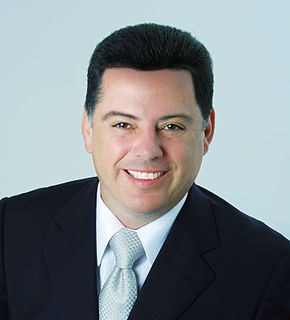
Marconi Ferreira Perillo Júnior is a Brazilian politician, affiliate to the Brazilian Social Democracy Party (PSDB). He is the current governor of the state of Goiás and he is on his third mandate.

The Federal Senate is the upper house of the National Congress of Brazil. Created by the first Constitution of the Brazilian Empire in 1824, it was initially similar to the United Kingdom's House of Lords. Since the Proclamation of the Republic in 1889 the Federal Senate has resembled the United States Senate.


